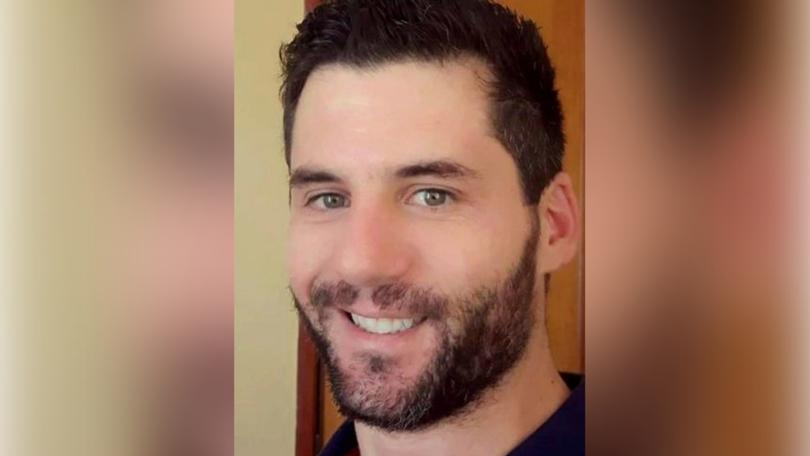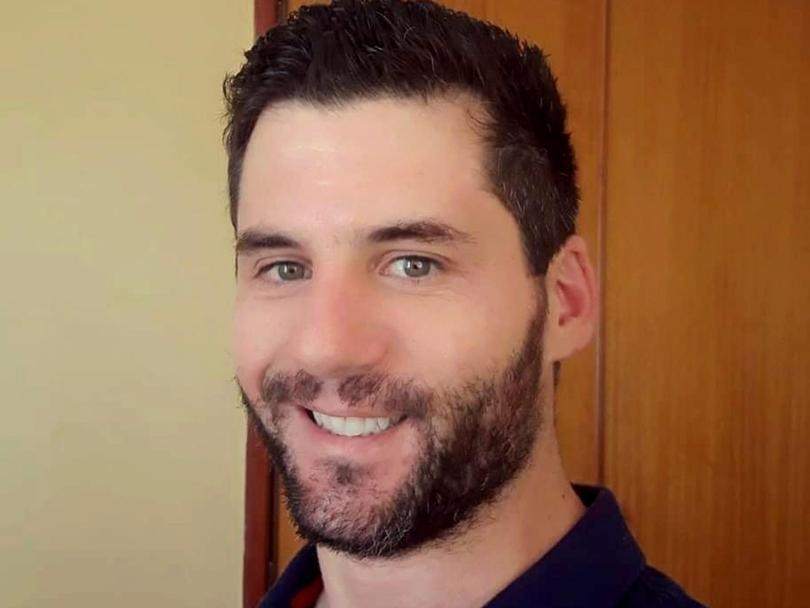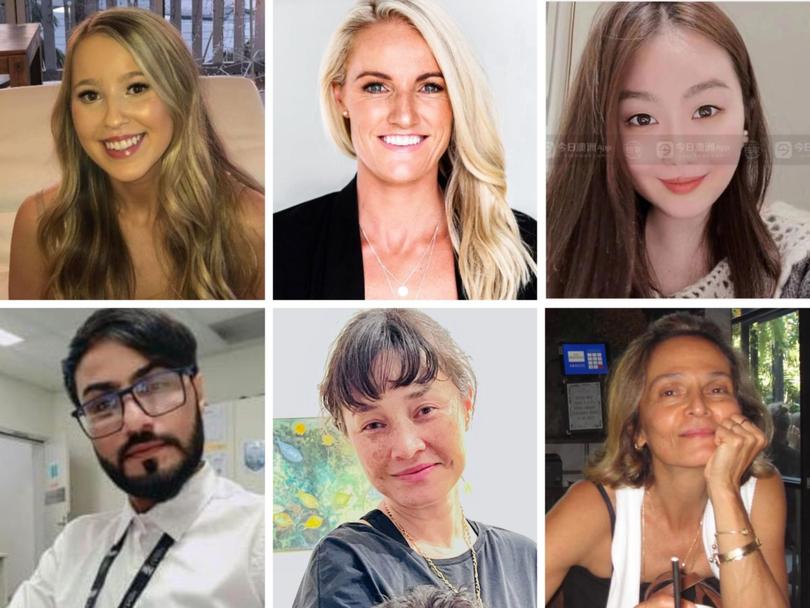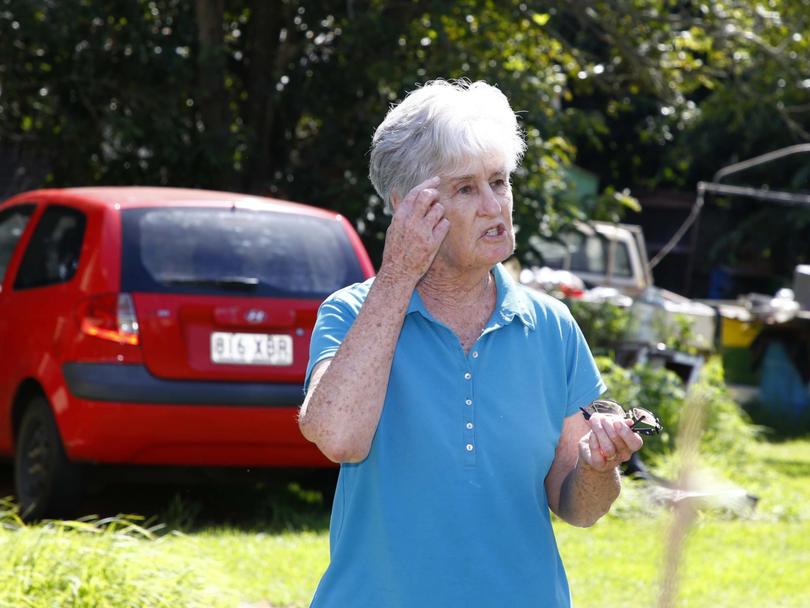Nurse who treated killer Joel Cauchi ‘vomited’ when she discovered he was behind the fatal rampage at Westfield Bondi Junction

A nurse who treated Bondi killer Joel Cauchi “vomited” when she found out he was behind the fatal rampage as an inquest probes how he fell through the cracks of the country’s mental health system.
Cauchi, 40, killed six people and stabbed another 10 during a stabbing rampage at Westfield Bondi Junction on April 13, 2024.
Dawn Singleton, Yixuan Cheng, Faraz Ahmed Tahir, Ashlee Good, Jade Young and Pikria Darchia died in the incident.
Sign up to The Nightly's newsletters.
Get the first look at the digital newspaper, curated daily stories and breaking headlines delivered to your inbox.
By continuing you agree to our Terms and Privacy Policy.Cauchi was diagnosed with schizophrenia when he was 17 and was medicated for more than a decade to treat the condition until he stopped taking all psychotropic medication in 2019.
Counsel assisting the coroner, Peggy Dwyer SC, earlier noted that most people with schizophrenia “will never commit an act of violence”.
His mental health treatment is being probed over the five-week coronial inquest.

One of the nurses who treated Cauchi on and off in Toowoomba between 2011 and 2019 “vomited” when she first discovered he’d been behind the fatal attack.
The nurse, who can only be known as RN2, said she’d never thought Cauchi would have done something like that after finding out from a text message from someone in the Toowoomba area.
“I was incredibly shocked, I wouldn’t have ever thought that was something he would’ve ever done,” the nurse told the court.
“When they said it was Joel, I looked it up, and then I vomited when I saw it was him.
“It still feels like … it’s odd because it’s incongruent with what I know of Joel. It really doesn’t make any sense.”
Cauchi was taken off medication under supervision
Cauchi was treated in the public system in Toowoomba from 2001-2012 until he was transferred to the care of a private psychiatrist, known as Dr A.
Cauchi saw the psychiatrist about once a month, and his dose of clozapine was gradually reduced while under his care until he stopped taking it in June 2018.
The court was earlier told Cauchi was concerned about over-sedation, and the decision to stop taking clozapine was supported by a second opinion from a psychiatrist in 2015 who had treated Cauchi in the public sector.
Cauchi then stopped taking abilify in 2019, meaning by June of that year he was not taking any psychotropic medications.
“In Mr Cauchi’s case, his cessation of treatment unfortunately coincided thereafter with him exiting the mental health system altogether. He was effectively lost to follow-up from early 2020,” Ms Dwyer earlier told the court.
She said evidence suggested Cauchi’s mother Michele had raised concerns several times with a Toowoomba clinic about her son hearing voices and writing notes he was “under satanic control”.
Dr A gave him scripts for abilify and rexulti in November and December 2019.

However, Cauchi didn’t take it due to side effects, and Dr A left it up to Cauchi to decide whether to take the prescribed medications.
Cauchi moved to Brisbane in 2020 and unsuccessfully tried to join a Skype session with Dr A.
When the clinic discovered he’d moved to Brisbane, they believed he wasn’t eligible for Medicare Skype appointments or nursing support.
Cauchi didn’t want to attend appointments in person due to difficulties travelling, so the clinic cancelled the appointment.
The court was told staff contacted him over a referral to a Brisbane GP, but he told them he didn’t have one yet and would keep them posted.
Dr A then discharged Cauchi into the care of his Toowoomba-based GP, which “signified a rather sudden end to Cauchi’s treatment by Dr A after what had been consistent treatment and attendance over eight years”.
Cauchi ‘didn’t want to get unwell’
RN2 was Cauchi’s case manager from about 2015-2017.
She would monitor his mental and physical symptoms before he would then have appointments with the psychiatrist.
He was on a “moderate” level of clozapine (250mg), which was then lowered to 200mg in April 2016.
Cauchi was ultimately taken off the medication completely by June 2018.
RN2 said patients on clozapine were closely monitored due to potential life-threatening side effects, and it was a general aim to keep the dosage of the medication low.

The lowering of the dose was initially to manage Cauchi’s side effects rather than to end it completely, she told the court.
She also couldn’t recall having experience with any other patients where the dosage was stopped without then being prescribed a different antipsychotic medication.
She agreed that Cauchi appeared to have an understanding of the complexity of his condition during the first period of care from 2015 onwards.
“The fact that he was prescribed clopine … indicated that he had treatment-resistant schizophrenia, so that obviously meant that his condition was quite severe,” she said.
“However, because he was so compliant, he wasn’t difficult to manage, and he was stable during that period as well in terms of mental state.”
She said Cauchi was “relatively insightful” and conscious of his illness and “had anxiety” about it.
“He was quite diligent in monitoring for signs of relapse, he didn’t want to get unwell, and he was very conscientious with regard to his mental health. I think that was evidenced by his punctuality and engagement with our service,” she said.
“He wanted to get the support and make sure that he did the right thing. I would’ve been very confident that if he had … symptoms (of a schizophrenia relapse), because he was concerned, that he would have been open about them.”
When monitoring for potential signs of a relapse, she said she’d monitor for pronounced changes in behaviour, declining functioning and self-care or cognitive decline.
Cauchi’s mum concerned over swearing, irritability
RN2 resigned in 2017 before returning to the clinic in 2019, but she did not care for Cauchi then.
The court was told Mrs Cauchi had raised concerns with the private clinic in February 2020 that her son’s unit was a mess and he appeared more isolated, irritable and was occasionally swearing.

The nurse was asked if she’d ever known Cauchi to swear, and she replied: “No.”
His mum had asked the nurse not to let Cauchi know she’d called, but she was worried that if he moved to Brisbane that he might become homeless.
Cauchi was previously seeing a peer support worker but had decided to stop as he was planning to move to Brisbane.
RN2 offered Cauchi’s mum a referral to the support program or for the pair of them to come in for a session together; however, she declined the latter, the inquest was told.
RN2 ultimately made clinical notes about the phone call and then let either a doctor or administrator at the clinic know.
While she thought it was worth mentioning, she noted it wasn’t unusual for someone moving out of home for the first time, particularly with someone with Cauchi’s medication and condition, to have things like a messy unit.
Cauchi is not eligible for appointments
RN2 was told Cauchi was discharged and referred to a GP when he moved to Brisbane in 2020, as he was no longer eligible for Skype appointments due to the nature of the funding system’s structure.
It meant he’d have to pay for appointments, which he didn’t want to go ahead with.
She said it “wasn’t an ideal system”.
“I think that given the barriers to accessing psychiatry in terms of cost and time frames and, also as you’re saying, someone’s quite disorganised, as a lot of people with various mental health (conditions) can be, then it puts a lot of barriers in place and it may ultimately result in not accessing services,” the nurse said.
First witness to offer condolences to Cauchi family
Another nurse who treated Cauchi has become the first witness to express her condolences to his family during the inquest.
“I wanted to say that this has been a profoundly tragic and sad event,” the nurse, who can only be known as RN3, told the court.
“(I) express condolences and sorry for all the families who lost a loved one … to those who have been injured physically and emotionally.
“I also wish to express my condolences to the Cauchi family.”
More to come
Lifeline: 13 11 14.
If you or someone you know needs help, phone SANE Australia Helpline on 1800 18 SANE (7263).
If you or someone you know is experiencing family violence, phone 1800 RESPECT (1800 737 732) or the Crisis Care Helpline on 1800 199 008.
If you or someone you know needs help, contact 1800 RESPECT (1800 737 732), or Sexual Assault Counselling Australia on 1800 211 028,
